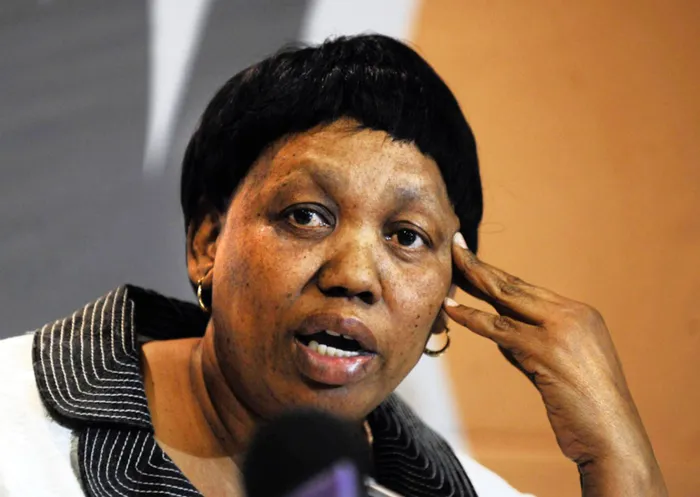
Basic Education Minister Angie Motshekga. File picture: Thobile Mathonsi/Independent Media Basic Education Minister Angie Motshekga. File picture: Thobile Mathonsi/Independent Media
Western Cape Education MEC Debbie Schäfer has disregarded a personal request from Basic Education Minister Angie Motshekga not to proceed with her ideas which include, among others, the sale and consumption of alcohol at schools.
In a scathing response to the Western Cape executive’s decision, Motshekga personally raised her deep concerns with Schäfer and requested her not to table the Western Cape Provincial School Education Amendment Bill “in the hopes for wider consultation and discussion”.
But Motshekga’s request was ignored, said Basic Education Department spokesperson Elijah Mhlanga.
The SA Democratic Teachers Union (Sadtu) has weighed in on the matter, saying Schäfer was short-sighted and was adding fuel to the province’s problem with alcohol abuse.
“As the Department of Basic Education we believe the matter has not been properly canvassed. In terms of the procedures and in terms of the provisions in the constitution, particularly with regards to co-operative governance, there is a responsibility on the part of the MEC to ensure that the matter is tabled at the Council of Education Ministers meeting for discussions, especially because the matter is contentious,” said Mhlanga.
“We certainly have not endorsed or associated or supported this legislative amendment in any way and we are going to reflect on the way forward,” Mhlanga said.
Schäfer was further criticised for her remark that “high figures of abuse exist despite the fact that alcohol consumption at schools is currently not allowed this has clearly not stopped the abuse”.
Sadtu provincial secretary Jonavon Rustin said: “The MEC should consider placing greater emphasis on dealing with the impact alcohol abuse has on our children. Her view is narrow, and short-sighted."
Earlier this week Schäfer announced the provincial executive had approved the Western Cape Provincial School Education Amendment Bill, which will now go to the legislature.
The changes meant that: schools may permit the sale and consumption of alcohol on public school premises or at a school activity if they are granted permission by the Head of Department; pupils found guilty of serious misconduct may be sent to intervention facilities; education MECs may establish a School Evaluation Authority which will independently evaluate schools and develop school evaluation reports; and provisions have been made for the establishment of collaboration schools and donor-funded schools.
The country’s biggest teacher unions have vowed to oppose the decision they said was like the province running like an “independent state”.
Schäfer defended her decision to allow the sale and consumption of alcohol, saying schools needed the money that could be raised by the sale of alcohol.
“In the current economic landscape schools are finding it very difficult to raise additional funds to supplement the school’s income. The consequence of the current legislation is that schools cannot have school functions where alcohol is involved such as wine auctions, picnics, staff functions at the end of the year, beer gardens at the annual fete, car shows, food and wine festivals, cheese and wine evenings and potjiekos competitions." These fundraising events can raise a huge amount of revenue for the benefit of schools, she said.
“We are trying to better regulate what already happens at many of our schools which will allow us to put appropriate legislative mechanisms in place. These include rich and poor schools.”
Schäfer added the root causes of alcohol abuse needed to be examined. This was what the Game Changer, one of her department’s school developmental programmes, was doing, she argued.
